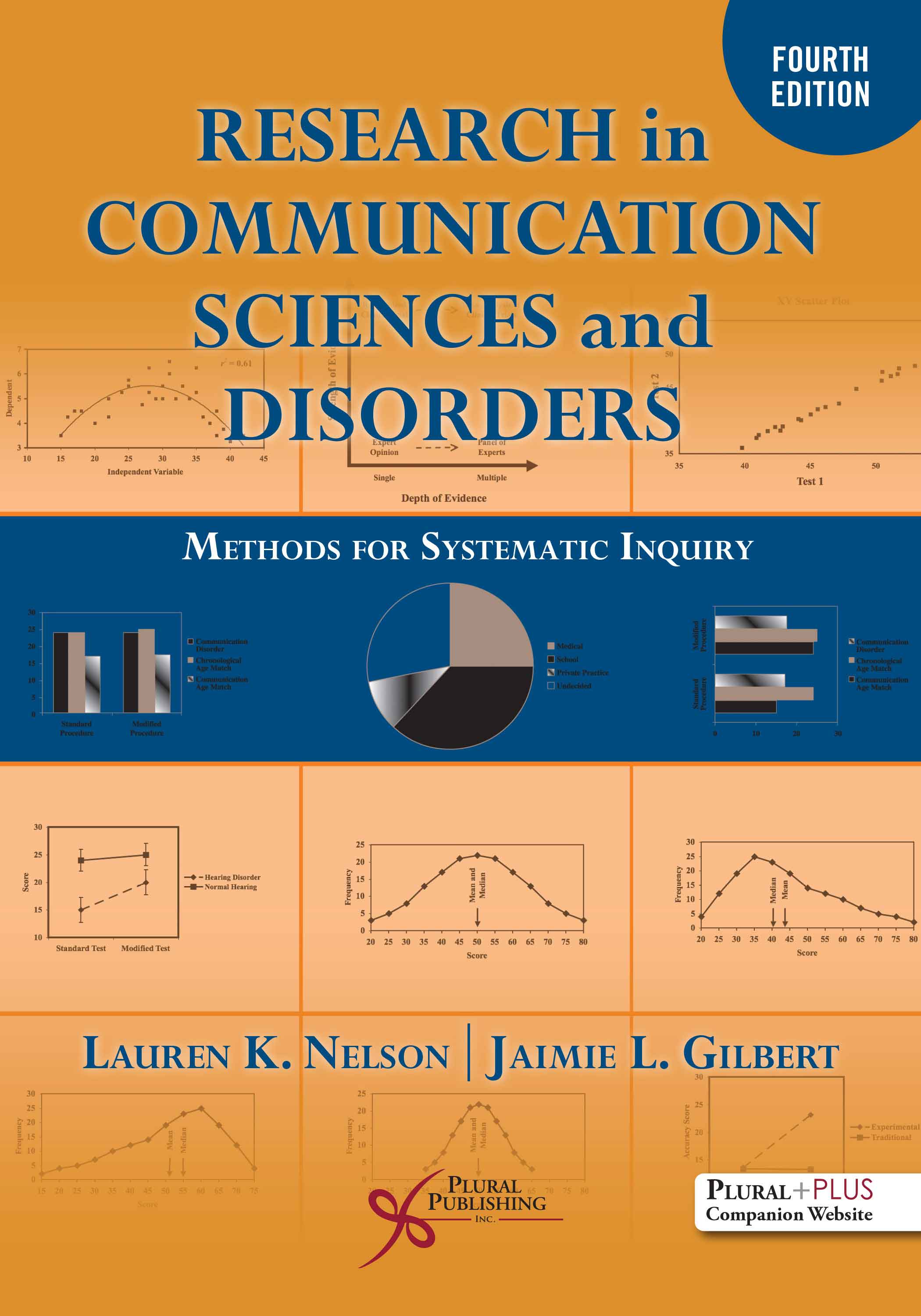
Research in Communication Sciences and Disorders: Methods for Systematic Inquiry.
Fourth Edition
Lauren K. Nelson, Jaimie L. Gilbert
Details: 279 pages, B&W, Softcover, 7" x 10"
ISBN13: 978-1-63550-205-3
© 2021 | Available
Research in Communication Sciences and Disorders: Methods for Systematic Inquiry, Fourth Edition is a comprehensive yet comprehendible text meant for instructors and students of research methods in the field of communication sciences and disorders. This forward-thinking book reflects the movement toward evidence-based practice in speech-language pathology and audiology.
The authors ensure that the concepts associated with evidence-based practice are integrated throughout the chapters. Rather than treating empirical research and searching for clinical evidence as separate topics, this text presents both as different applications of a process of scientific inquiry. The order of the chapters reflects the steps a researcher or clinician might complete when conducting an investigation. Also included are features that help students be more active in learning the material. Each chapter has a set of review questions or case scenarios that can be used as homework, as probe questions in class, or as a basis for group activities. In addition, the authors provide lists of supplemental readings from the research literature in the field.
New to the Fourth Edition
- New author: Jaimie L. Gilbert for an enhanced audiology perspective
- New chapter: Writing a Literature Review
- Reorganized for better flow of information
- Various new and updated references to reflect the current state of research
- Additional illustrations and tables
- Expanded material on critical appraisal
PluralPlus Online Ancillary Resources
For Instructors: PowerPoint lecture slides, answers to the review questions
For Students: Key words for each chapter, links to supplemental ebsites and documents, and interactive versions of select figures from the text.
Review
"The book provides a comprehensive overview of research methods in communication sciences and disorders, including descriptive chapters on critical components of research, which equips students to read and critique research, prepare for the Praxis exam, as well as engage in writing a study. The fourth edition also includes a chapter on writing literature reviews. A strength of the book is the manner in which the content is clarified and explained by the authors, rather than merely stated. It is well organized with well-referenced chapters that provide summaries, review questions, specific learning activities, and research scenarios."
—Suzanne M Welty, MA, EdD-CCC, Biola University, in Doody's Book Reviews (January 2021)
Preface
Chapter 1. Empirical and Nonempirical Research: An Overview
Systematic Inquiry
Some Roles for Research
Types of Research
Variables
Getting Started with Research
Summary
Review Questions
References
Appendix 1–1. Tips for Reading a Research Article
Chapter 2. Ethical Considerations
Protection of Human Participants
Special Protections
Historical Perspective
Institutional Review Boards
Research Integrity
Avoiding Conflicts of Interest
Credit for Intellectual Effort
Attribution of Ideas
Accuracy in Reporting Information
Data Management
Confidentiality and Privacy
Health Insurance Portability and Accountability Act
Summary
Review Questions
Learning Activities
References
Appendix 2–1. Research Scenario
Chapter 3. Identifying and Formulating Research Questions
Identifying Important Questions
Formulating Research Questions
Ways to Formulate a Research Problem
Evidence-Based Practice Questions
Criteria for Well-Formed Questions
Establishing Validity and Reliability
Summary
Review Questions
Learning Activities
References
Chapter 4. Completing a Literature Search
Purposes of a Literature Search
Planning and Conducting a Search
Search Tools
Designing a Search Strategy
Organizing and Documenting Your Literature Search
Summary
Review Questions
Learning Activities
References
Appendix 4–1. Electronic Literature Search
Chapter 5. Writing a Literature Review
Research Phases
Purposes of a Literature Review
Organization
Note Taking
Writing the Paper
Example of an Outline
Summary and Conclusions Section
Citations and References
Literature Review Checklist
Types of Literature Reviews
Summary
Review Questions
Learning Activities
References
Chapter 6. Nonexperimental Research Design
Nonexperimental Research Designs
Survey Research
Case Studies
Longitudinal Research
Correlation and Regression
Group Comparisons
Causal-Comparative Research
Qualitative Research
Ethnography
Grounded Theory
Case Study
Phenomenology
Conversation Analysis
Scientific Rigor in Qualitative Research
Summary
Review Questions
Learning Activities
References
Appendix 6–1. Examples of Research Designs
Chapter 7. Experimental Research and Levels of Evidence
Experimental Research Designs
Posttest-Only Designs
Pretest–Posttest Randomized Control Group Design
Solomon Randomized Four-Group Design
Switching Replications Design
Factorial Designs
Importance of Experimental Control
History
Maturation
Statistical Regression
Instrumentation
Selection
Mortality
Quasi-Experimental Approaches
Nonequivalent Control Group Designs
Repeated Measures Group Design
Single-Subject Designs
Single-Subject Design Quality
Experimental Designs and Levels of Evidence
Summary
Review Questions
Learning Activities
References
Appendix 7–1. Research Scenario
Chapter 8. Research Participants and Sampling
Populations and Samples
Sample Characteristics
Sampling Methods
Simple Random Sampling
Systematic Sampling
Stratified Random Sampling
Cluster Sampling
Purposive Sampling
Random Assignment
Sample Size
Summary
Review Questions
Learning Activities
References
Chapter 9. Data Analysis: Describing Different Types of Data
Levels of Measurement
Visual Representation of Data
Descriptive Statistics
Frequencies and Percentages
Measures of Central Tendency
Measures of Variability
Means as Estimates
Shapes of Distributions
Summary
Review Questions
Learning Activities
References
Chapter 10. Data Analysis: Inferential Statistics
Inferential Statistics
Measures of Association
Pearson Product-Moment Correlation Coefficient
Coefficient of Determination
Spearman Rank-Order Correlation
Chi-Square and Contingency Coefficient
Simple Regression and Multiple Regression
Testing for Differences Between Two Samples
Independent and Paired t-Tests
Confidence Intervals
Mann-Whitney U
Sign Test and Wilcoxon Matched-Pairs Signed-Ranks Test
Testing for Differences among Three or More Samples
Statistical Analysis for Factorial Designs
Additional Tools for Analyzing Clinical Data
Caution in the Use and Reporting of Statistics
Summary
Review Questions
Learning Activities
References
Appendix 10–1. Examples of Data Analysis Procedures
Chapter 11. Research Outcomes: Clinical Guidance, Research Reports
Knowledge Base for Evaluating Clinical Research
Critical Appraisal
How Applicable Are the Findings
Reporting Research Findings
Components of a Research Report
Writing Guidelines and Writing Style
Disseminating Research Findings
Summary
Review Questions
Learning Activities
References
Index
Research in Communication Sciences and Disorders: Methods for Systematic Inquiry, Fourth Edition comes with access to supplementary student and instructor materials on a PluralPlus companion website.
STUDENTS:
To access the student materials, you must register on the companion website and log in using the access code printed on the inside front cover of your book.
INSTRUCTORS:
To access the instructor materials, you must contact Plural Publishing, Inc. to be verified as an instructor and receive your access code.
Email: instructormaterials@pluralpublishing.com
Tel: 866-758-7251 (toll free) or 858-492-1555
*Note for students: If you have purchased this textbook used or have rented it, your access code will not work if it was already redeemed by the original buyer of the book. Plural Publishing does not offer replacement access codes for used or rented textbooks.
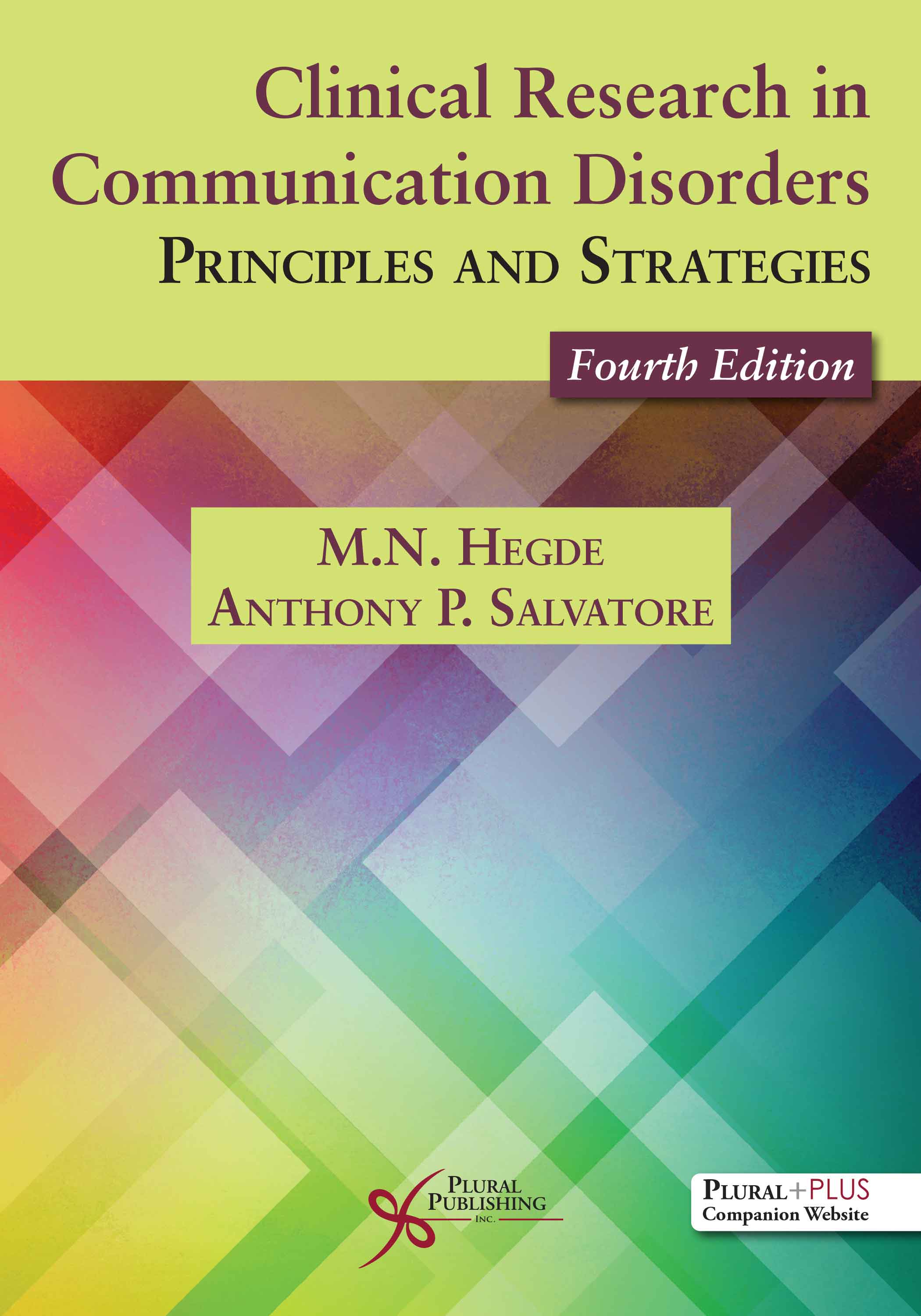
Clinical Research in Communication Disorders: Principles and Strategies
Fourth Edition
M.N. Hegde, Anthony P. Salvatore
Details: 526 pages, B&W, Softcover, 7" x 10"
ISBN13: 978-1-63550-187-2
© 2020 | Available
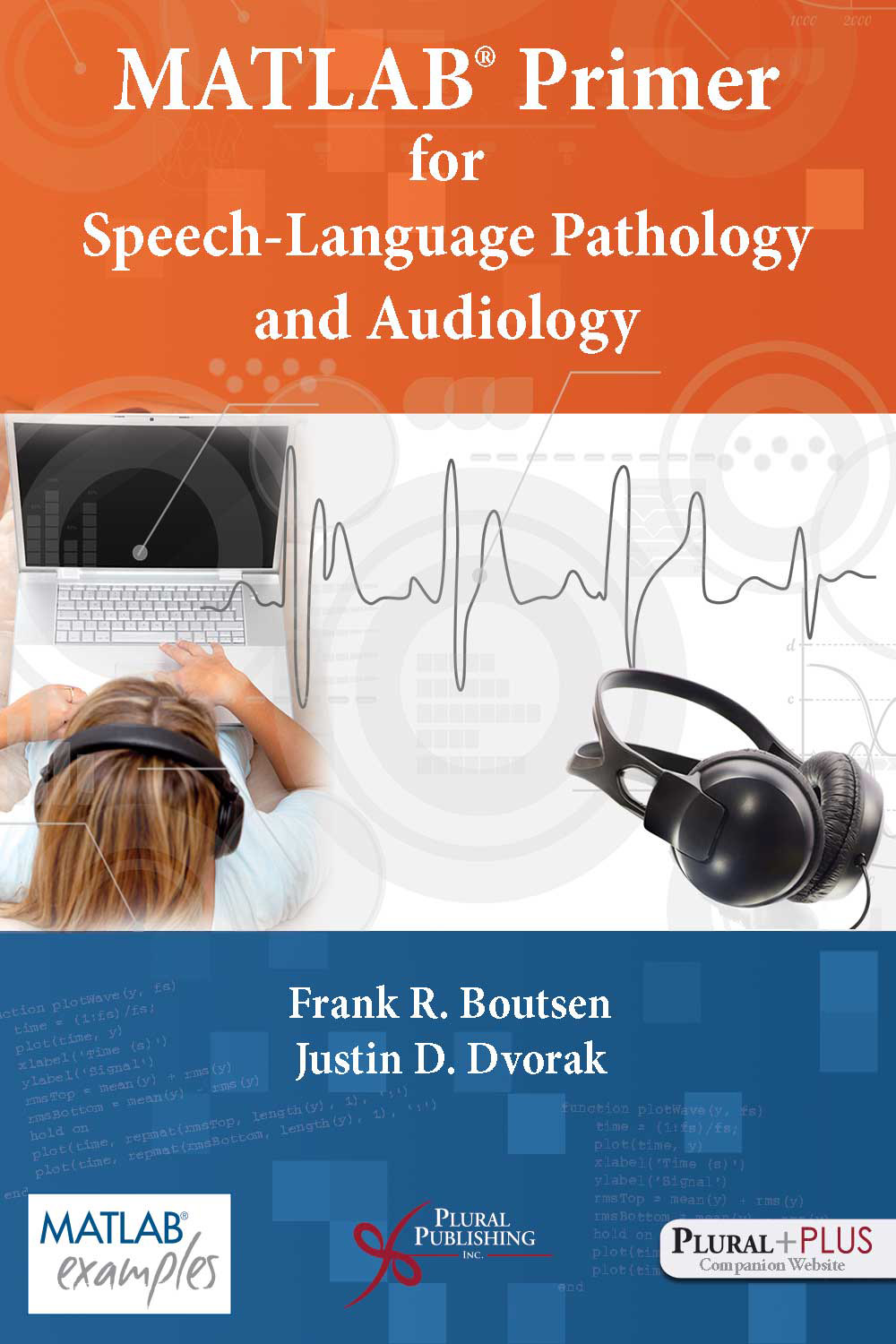
MATLAB® Primer for Speech-Language Pathology and Audiology
First Edition
Frank R. Boutsen, Justin D. Dvorak
Details: 232 pages, B&W, Softcover, 7" x 10"
ISBN13: 978-1-59756-653-7
© 2016 | Available
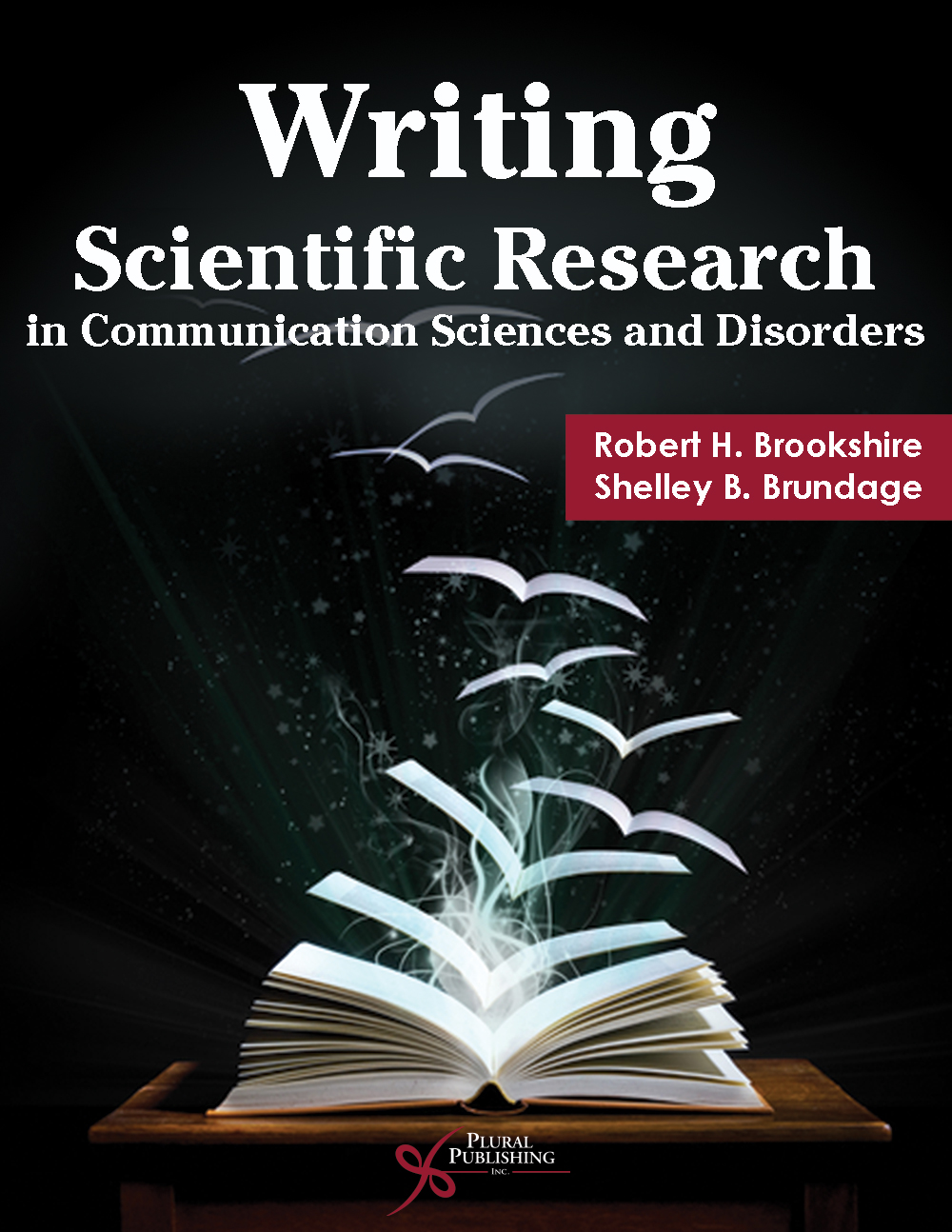
Writing Scientific Research in Communication Sciences and Disorders
First Edition
Robert H. Brookshire, Shelley B. Brundage
Details: 214 pages, B&W, Softcover, 7" x 10"
ISBN13: 978-1-59756-614-8
© 2016 | Available

Building a Research Career
First Edition
Christy L. Ludlow, Raymond D. Kent
Details: 224 pages, B&W, Softcover, 7" x 10"
ISBN13: 978-1-59756-227-0
© 2011 | Available
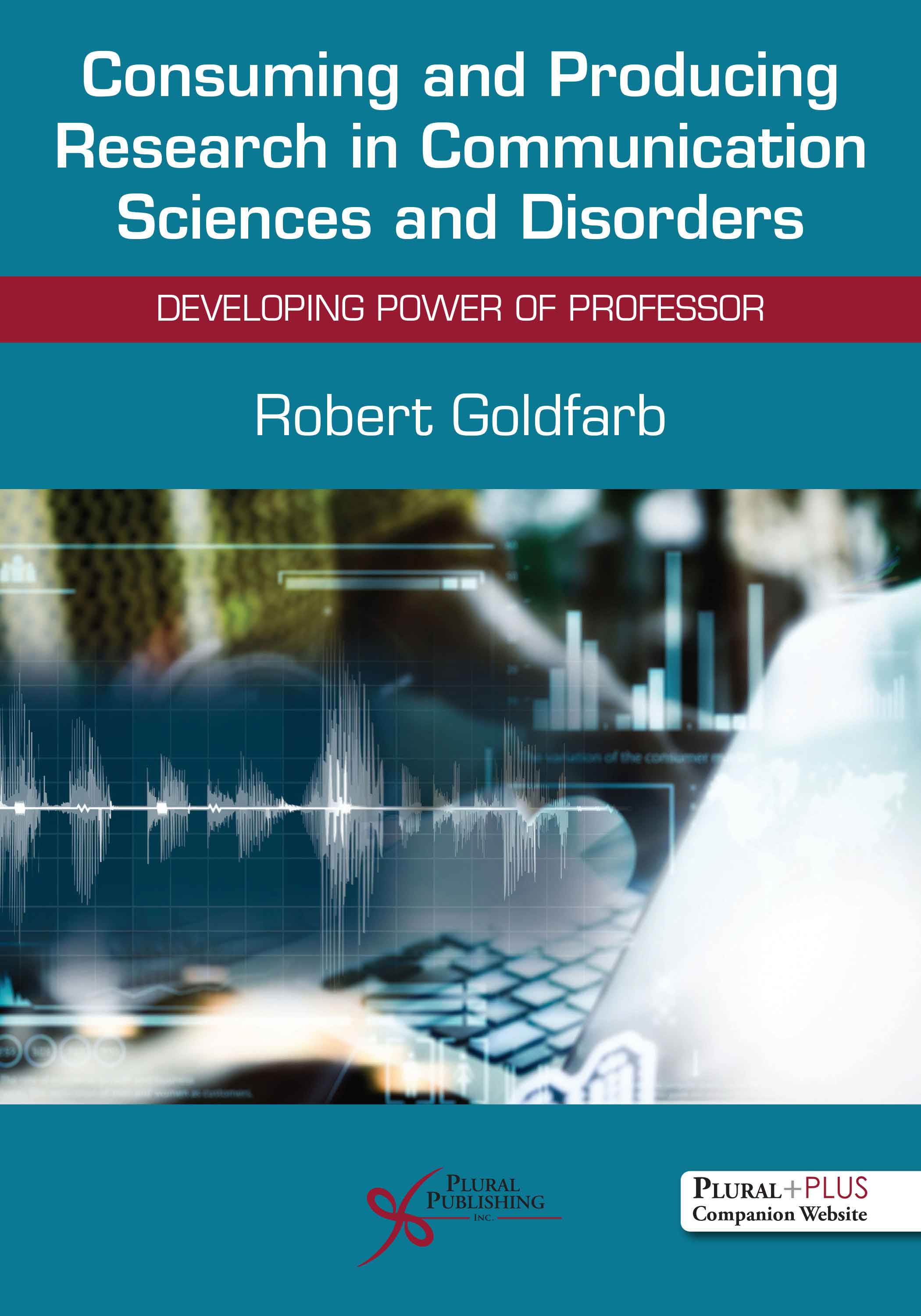
Consuming and Producing Research in Communication Sciences and Disorders: Developing Power of Professor
First Edition
Robert Goldfarb
Details: 369 pages, B&W, Softcover, 7" x 10"
ISBN13: 978-1-63550-067-7
© 2021 | Available
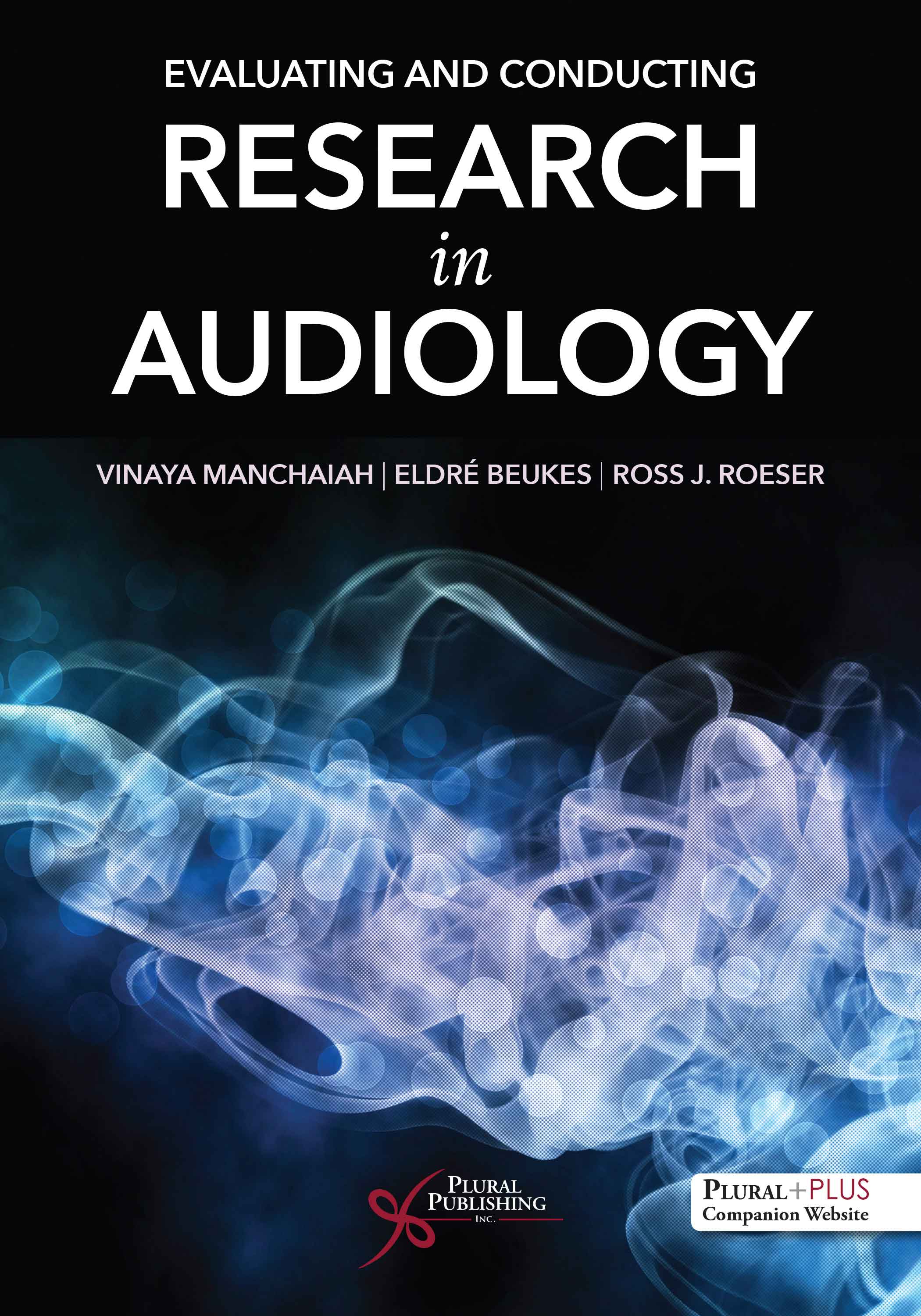
Evaluating and Conducting Research in Audiology
First Edition
Vinaya Manchaiah, Eldré W. Beukes, Ross J. Roeser
Details: 400 pages, B&W, Softcover, 7" x 10"
ISBN13: 978-1-63550-190-2
© 2022 | Available
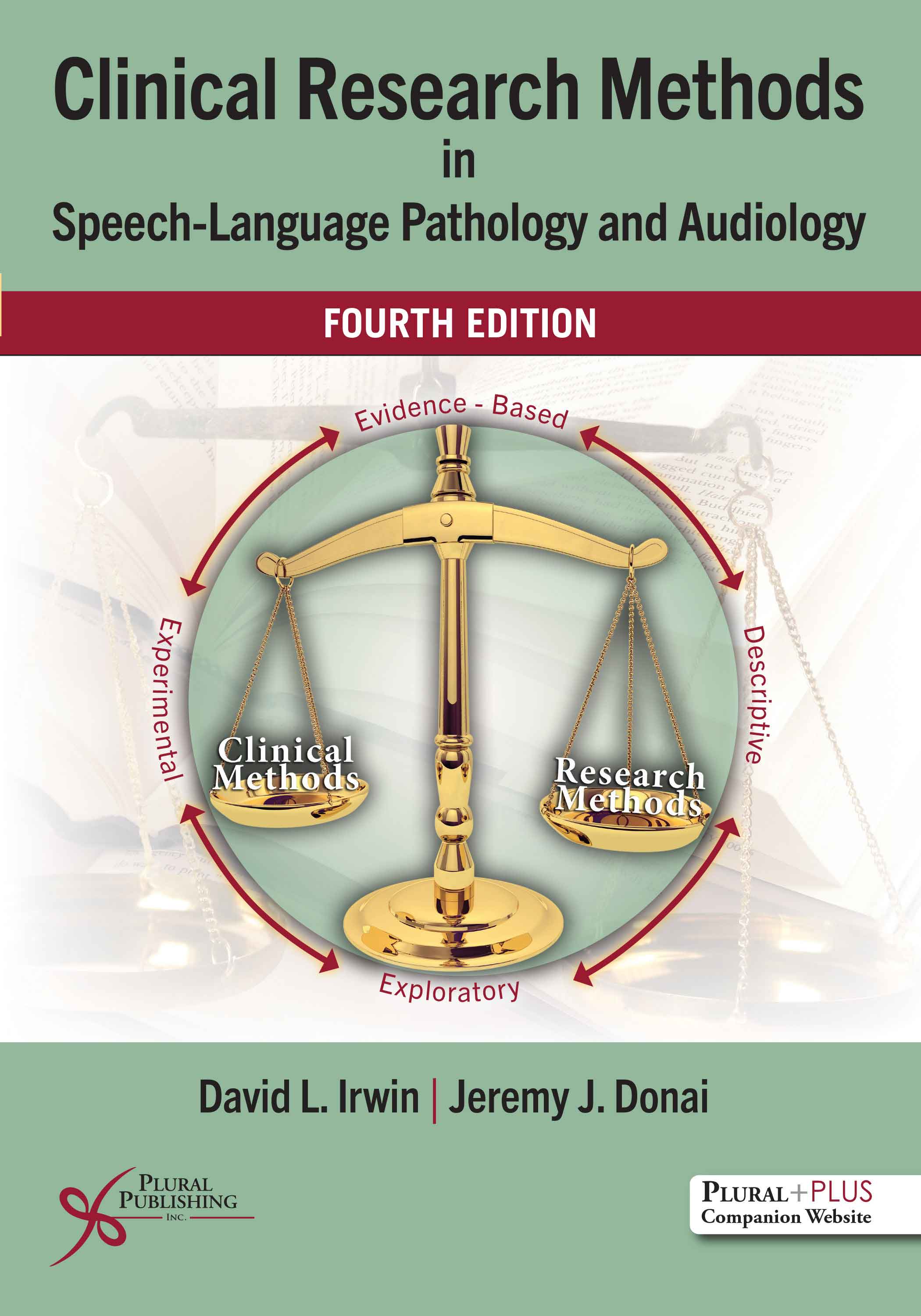
Clinical Research Methods in Speech-Language Pathology and Audiology
Fourth Edition
David L. Irwin, Jeremy J. Donai
Details: 355 pages, B&W, Softcover, 7" x 10"
ISBN13: 978-1-63550-722-5
© 2026 | Available


